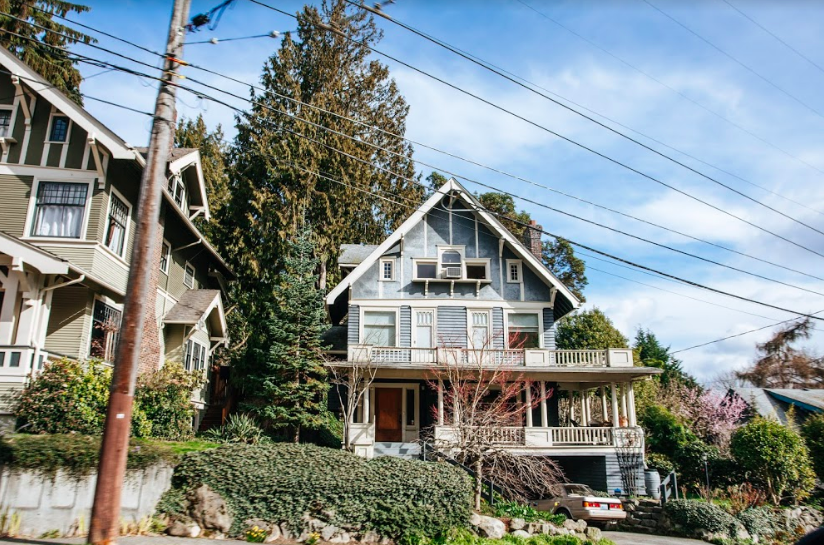The decision of whether to rent or buy is more complicated than usual in Seattle, where both home and rent costs have been rising in recent years.
The coronavirus pandemic hit the economy and housing market hard, and caused both supply and demand to plummet. Demand for housing has cautiously returned while supply is still catching up, but one thing is relatively unchanged — the high housing and rental prices in the Pacific Northwest.
The ever-increasing cost of rent prompts many people to consider whether buying a home might make more sense. Others are put off by the assumption that their monthly mortgage payment will be much higher than their current rent.
If new families and young professionals pay too much in rent, home ownership may remain just out of reach. Even the most generous mortgage programs, like FHA mortgages, still require at least 1%, but often 5% or more, for down payments.
However, the home equity you’ll gain as your home appreciates in value often makes the higher payment worth it. Here are some things to consider when trying to make the decision to rent or buy a home in Seattle.
[Related: The Complete Guide to Moving to Seattle]
Estimate Financial Feasibility Online
Use a rent vs. buy calculator to estimate which decision can give you more bang for your buck based on your desired home price and/or monthly rate and your expected length of residency. Realtor.com offers a free and easy-to-navigate online calculator to tickle your curiosity, but here is an example we’ve created to break it down.
Going from a Two-Bedroom Rental to Home Ownership
Rents vary considerably by neighborhood in Seattle, but in August 2020 the average was $2,797 for a two-bedroom apartment. Imagine that this person is considering purchasing a $550,000 home with a 10% down payment.
Their new monthly payment will include a $495,000 mortgage at 5%, property taxes of $426, homeowner’s insurance of $80, and mortgage insurance of $87 — coming to a monthly total of $3,251.
The difference between the person’s current rent and expected costs after purchasing is $454, and this doesn’t include property upkeep or any homeowner dues that may be required.
Many potential buyers will feel that owning a home is not worth the extra money in monthly costs; and for some, that may be the right decision. But we also have to consider the potential equity that homeownership brings. Property appreciation fluctuates and is never guaranteed, but the average annual rate of appreciation in Seattle is 4.30%. To be conservative, we’ll assume appreciation is 4%.
A $550,000 home that appreciates at a rate of 4% will be worth $594,880 in two years. This means that the homeowner will be gaining about $1,870 a month in equity, while only paying $454 more a month. So, if you consider the additional cost of a mortgage over rent as the investment amount, you are looking at an impressive return on investment!
[Related: 15 Essential Questions to Ask When Buying a Home]
Know What You’re In For
What responsibilities can you expect throughout the homebuying process? Refer to our handy first time buyers’ guide to review credit worthiness, affordability, financing, and more.
If you are in a state of financial limbo (for instance, maybe you’re a millennial in the early stages of your career — and your projected salary range), or if you are not ready to commit to a semi-permanent living situation, do your research to inform your option-weighing process.
Weigh Any Restrictions
Perhaps you’re eager to add a furry member to your family, but your landlord forbids pets in the building. Maybe you feel boxed in and are itching for some backyard space, or are sick of sharing common areas such as a community rooftop or balcony.
If buying appears to be a real option for you, perhaps the greatest perk to owning your own home is the most obvious: you’re the king or queen of the castle! Of course, with great power comes great responsibility.
[Related: Guide to Buying a Home in Seattle]
Consider No-Down-Payment Mortgages
To promote homeownership, the Federal Reserve has proposed a new form of fixed, 30-year mortgages that require no down payment.
Because the monthly payment is fixed, borrowers will know exactly how much to budget. However, the interest rate for the loan may change with the market, leaving those with these mortgages susceptible to increasing rates.
A special equity account would offset increased interest rates. If rates were to go down, excess would go directly into that account to establish a buffer or reduce your principal owed.
[Related: Can I Afford to Buy a Home in Seattle?]
Take Advantage of Low Interest Rates
Take advantage of the current low interest rates and lock them in.
The Federal Reserve has signified that interest and mortgage rates are likely to stay low for several years to come as the economy recovers from COVID-19’s impact. So if you’re thinking of taking the plunge, now might be the best time to lock in a low interest rate.
Talk to a Broker
Chances are you’ll need a boost when it comes to making one of the biggest purchases of your life. This is where your mortgage steps into play.
However, securing a reasonable rate and configuring the terms of your loan can be a daunting task.
Whether you’re ready to take the leap from lease to long-term or are looking to define or demystify the mortgage, start by requesting a no-obligation quote. Once you know where your potential rate stands, you’ll be better able to determine whether to move forward or press pause.
Seattle Mortgage Planners is prepared to help when the timing is right.
For help determining if renting or owning a home makes the most sense for you, contact us today to consult with a trusted mortgage planner. We’ll review your unique circumstances, consider your options, and help you understand which home loan is best for you Book some time with Seattle Mortgage Planners!

